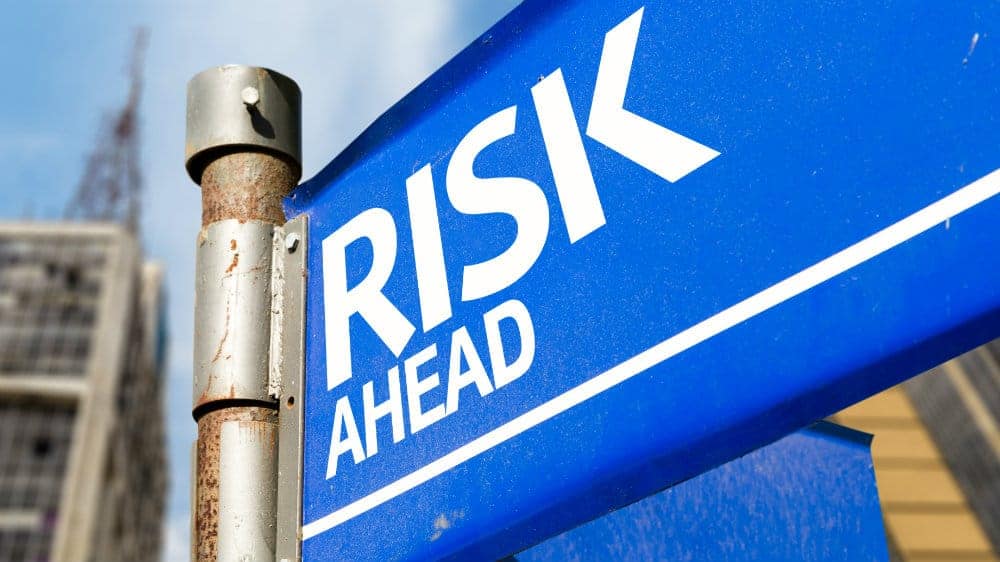Share this page:
You won’t often see the words ‘stable’ and ‘cryptocurrency’ in the same sentence. Unless, of course, you’re talking about the oxymoron that is a stablecoin.
One of the largest credit rating agencies in the world has drawn a line in the sand to say that these coins may not be so stable after all. Not only that, but the agency believes the coins pose a significant risk to financial markets. Here’s what they said about digital tokens and why it’s important.
What is a cryptocurrency stablecoin?
If you’re unfamiliar with the term, don’t worry. Here’s a straightforward explanation covering the basics.
A stablecoin is a digital token built on top of a crypto network (usually Ethereum). The idea is that one stablecoin represents one denomination of a fiat currency – usually a US dollar.
The purpose of these stablecoins is to create more liquidity in the crypto markets, making it easier and faster to make trades. Some of the most popular stablecoins available are:
- Tether (USDT)
- USD Coin (USDC)
- Binance USD (BUSD)
- Dai (DAI)
Why do these cryptocurrencies present a problem?
Fitch Ratings, one of the biggest credit rating agencies out there, has voiced its concerns over these tokens.
Their main fear is that so much cash is beginning to sit in these virtual currencies that they could start impacting financial markets.
This is partly why the deputy governor of the Bank of England also recently talked about the risks cryptocurrencies present to wider markets.
How might a cryptocurrency like this bring risk?
Most of these stablecoins do not have 100% cash backing. This could be a problem if a crash occurs or if investors want to sell all their stablecoins.
If either happens, the companies who control the stablecoins may have to sell other assets to cover the costs. This doesn’t pose a huge problem right now, but if these coins keep growing – the organisations controlling them will own more assets.
So as the crypto industry gets bigger, so too does the power of crypto companies. But the larger they get, the further they might fall. They may end up with such a large hoard of money and assets that issues could have a domino effect and trigger a wider crash that affects areas outside of cryptocurrency.
What can be done to make cryptocurrency stablecoins safer?
Facebook has had its own stablecoin ‘Diem’ in the works for some time now. There are fears that a coin this big could have a global impact. That’s because without a regulatory structure in place, this impact could easily turn negative.
It seems like Fitch Ratings and the Bank of England both agree that proper regulation is the only way to reduce the risk these tokens pose to markets.
The EU is striving for new regulations that would mean stablecoins have to hold the majority of their reserves in cash, or in very low-risk government securities (like bonds). This way, there’s less chance they would have such a dramatic impact on the markets if something went wrong.
How can you invest safely?
Sadly, there’s nothing you can do to stop the risk of stablecoins wrecking the markets. However, you can reduce your individual risk by investing in regulated assets.
This doesn’t mean boring investments! You can buy shares and funds in all sorts of industries – including space travel! Using a stocks and shares ISA can also protect your investments from tax, something you can’t do with crypto holdings.
Remember that all investing carries risk and you may get out less than you put in. But if stablecoins crash like a wrecking ball, it’s best to avoid being in the direct line of carnage.
The content in this article is provided for information purposes only. It is not intended to be, neither does it constitute, any form of investment advice. Bitcoin and other cryptocurrencies are highly speculative and volatile assets, which carry several risks, including the total loss of any monies invested. Readers are responsible for carrying out their own due diligence and for obtaining professional advice before making any investment decisions.
Was this article helpful?
YesNo
About the author
George is a writer and qualified financial adviser focused on educating others in personal finance & investing.
Share this page:
Some offers on The Motley Fool UK site are from our partners — it’s how we make money and keep this site going. But does that impact our ratings? Nope. Our commitment is to you. If a product isn’t any good, our rating will reflect that, or we won’t list it at all. Also, while we aim to feature the best products available, we do not review every product on the market. Learn more here. The statements above are The Motley Fool’s alone and have not been provided or endorsed by bank advertisers. John Mackey, CEO of Whole Foods Market, an Amazon subsidiary, is a member of The Motley Fool’s board of directors. The Motley Fool UK has recommended Barclays, Hargreaves Lansdown, HSBC Holdings, Lloyds Banking Group, Mastercard, and Tesco.
This post was originally published on Motley Fool



